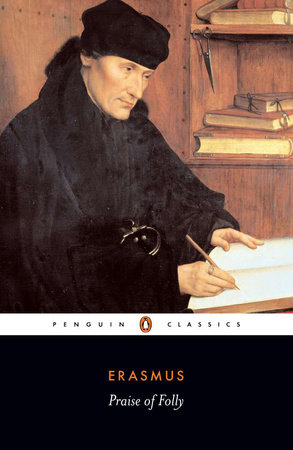
Praise of Folly and Letter to Maarten van Dorp
Desiderius Erasmus; Translated by Betty Radice; Introduction by and Notes by A. H. T. Levi
Paperback
March 1, 1994 | ISBN 9780140446081
AmazonBarnes & NobleBooks A MillionBookshop.orgHudson BooksellersPowell'sTargetWalmart
About the Book
For more than seventy years, Penguin has been the leading publisher of classic literature in the English-speaking world. With more than 1,700 titles, Penguin Classics represents a global bookshelf of the best works throughout history and across genres and disciplines. Readers trust the series to provide authoritative texts enhanced by introductions and notes by distinguished scholars and contemporary authors, as well as up-to-date translations by award-winning translators.


